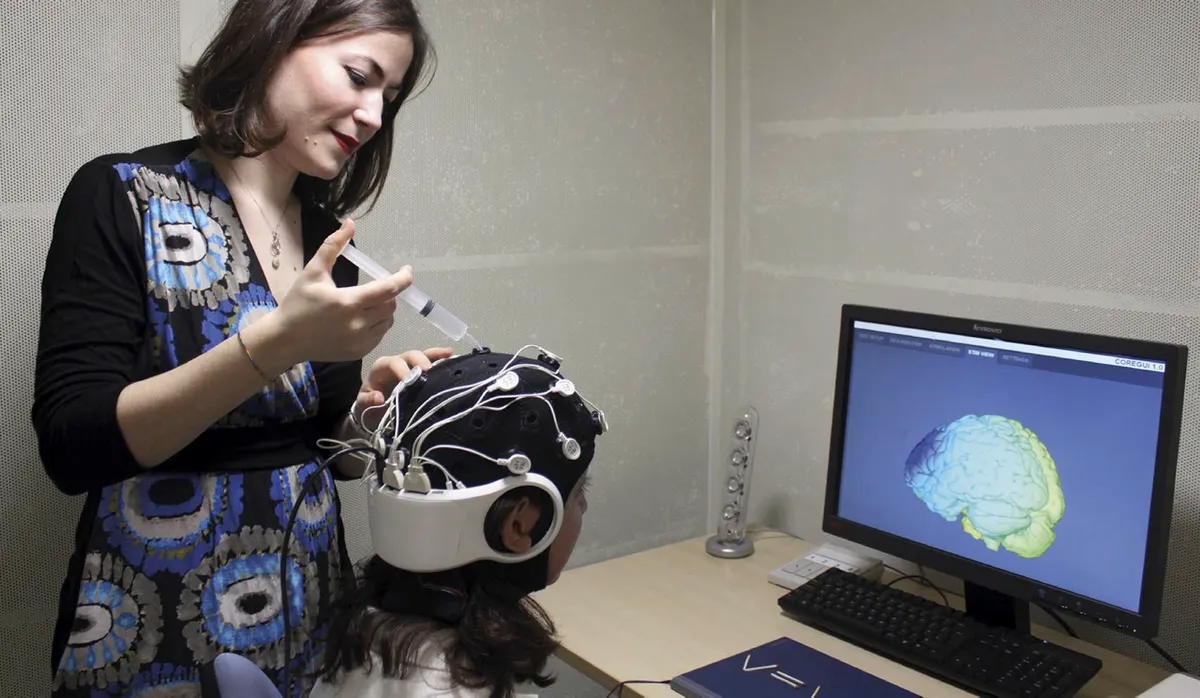Struggling to get your creative juices flowing?A team from Queen Mary University of London may have a solution – zap yourbrainwith a blast of electricity.
The researchers found that temporarily suppressing the activity of the left dorsolateral prefrontal cortex (DLPFC), an area of the brain involved in most of our thinking and reasoning, can boost our ability to “think outside the box”.
They used a technique called transcranial direct current stimulation (tDCS), to pass a weak electrical current through electrodes positioned on the head to alter the function of the DLPFC. Depending on the direction of the current flow, DLPFC was either temporarily suppressed or activated. When it was suppressed, the participants performed better at ‘matchstick problems’ – puzzles involving the rearrangement of geometric patterns of matchsticks designed to test lateral thinking.
“We solve problems by applying rules we learn from experience, and the DLPFC plays a key role in automating this process,” said researcher Dr Caroline Di Bernardi Luft. “It works fine most of the time, but fails spectacularly when we encounter new problems which require a new style of thinking – our past experience can indeed block our creativity. To break this mental fixation, we need to loosen up our learned rules.”

However, the boost in creativity came at a cost, as the participants got worse at solving problems that demanded a better use of memory.
“These results are important becausethey show the potential of improving mental functions relevant for creativity by non-invasive brain stimulation methods,” said Luft. “However, our results also suggest that potential applications of this technique will have to consider the target cognitive effects in more detail rather than just assuming tDCS can improve cognition as claimed by some companies which are starting to sell tDCS machines for home users.
“I would say that we are not yet in a position to wear an electrical hat and start stimulating our brain hoping for a blanket cognitive gain.”
The research ispublishedin the journalScientific Reports.
This extract came fromissue 310ofBBC Focusmagazine- for the latest science news and discoveriessubscribe here.
Follow Science Focus onTwitter,Facebook, Instagramand Flipboard
